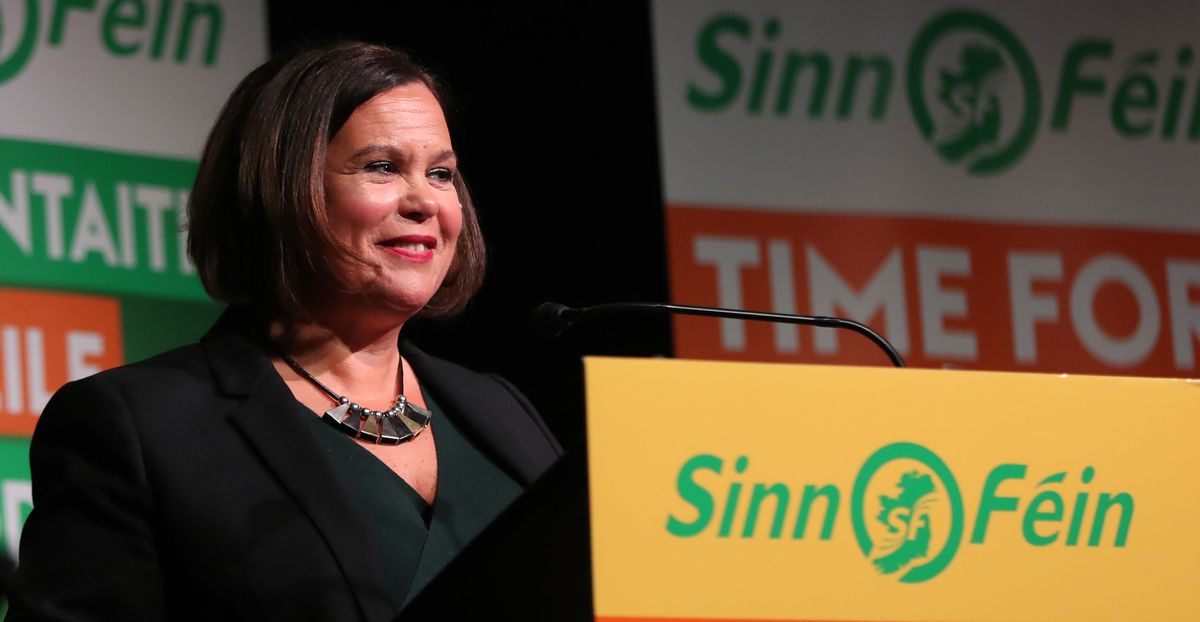On Saturday, voters in the Irish Republic will cast ballots in an election that could boost momentum toward an eventual break-up of the UK.
That's because the lasting story of this vote may well be the fast-rising popularity of the Sinn Fein party. Sinn Fein has capitalized on public anger over a healthcare crisis and housing shortage to rapidly expand its popularity in pre-election polls, but it is also now promising Irish voters a referendum on reunification of the Republic of Ireland (an EU member) with Northern Ireland (still part of the UK) within five years.
Saturday's election will be hotly contested, and the outcome is hard to predict. Prime Minister Leo Varadkar's minority government and his party, Fine Gael, have seen their poll numbers drop. Opposition party Fianna Fáil is likely to win the most seats, but Sinn Fein is now mounting a major challenge thanks to popular promises to address the health and housing questions. The party says it will tax the wealthy and large companies in order to raise the revenue needed to hire more doctors, build more homes, and lower the pension age.
Sinn Fein's supporters say the party offers a sharp break from both Fine Gael and Fianna Fáil, which have dominated Ireland's politics since the country won independence from Britain in 1921. While Varadkar's Fine Gael can claim to have lifted Ireland from the 2008-2009 financial crisis, Sinn Fein says they accomplished this with austerity policies that hit Ireland's working class especially hard.
Sinn Fein's detractors warn that the fresh faces now leading the party are a front for darker political forces. This is still, they say, the party that began as the political wing of the Irish Republican Army (IRA), the paramilitary group that waged war to push Britain out of Northern Ireland until the Good Friday Agreement in 1998.
Younger voters are crucial for tomorrow's result. Sinn Fein's recent polling surge comes mainly from those old enough to remember the austerity of the past decade but too young to remember the IRA.
Sinn Fein won't be able to form a government, at least not this year. Even if it does well on Saturday, it hasn't put forward enough candidates to win a majority of seats. And both Fine Gael and Fianna Fáil insist they won't invite Sinn Fein to join a coalition government because, they say, it would ruin Ireland's economy and because the party remains tainted by its history.
If Fianna Fáil or Fine Gael win the most seats, they could exclude Sinn Fein by inviting Labour and the Green Party to form a coalition government. But it's possible that Sinn Fein will win too many seats to be ignored. Even if it merely becomes the lead opposition party, its pledge to hold a reunification referendum will elevate that issue into Ireland's mainstream political dialogue.
Bottom line: Scotland and Northern Ireland voted to keep the UK in the European Union. Brexit has already provoked calls for a new vote on Scotland's independence. If tomorrow's vote boosts Sein Fein's role in Ireland's political future, demand for Irish reunification will grow louder.



















